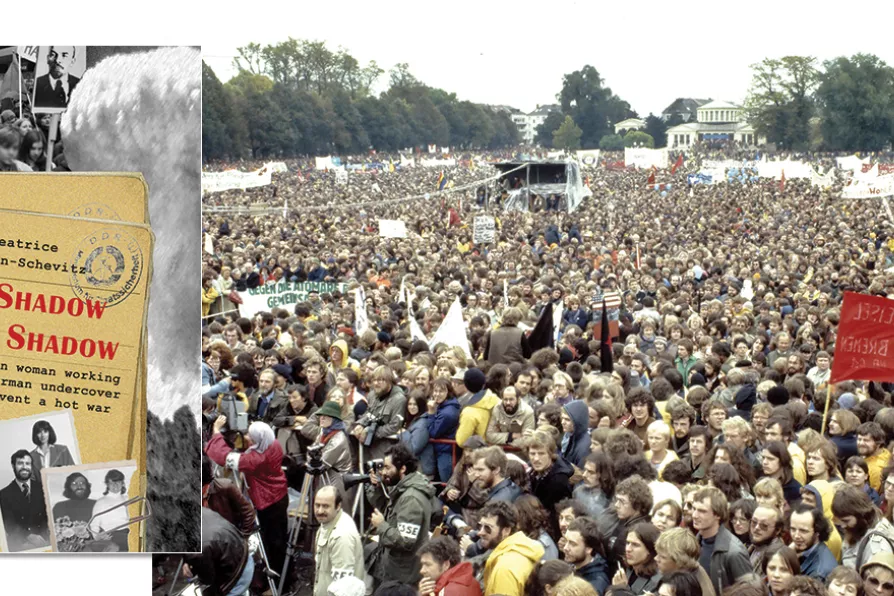New releases from The Thumping Tommys, Dan O’Farrell and The Difference Engine, and Sean Taylor

 TRIGGER FACTOR: Mass peace demonstration in Bonn against the modernisation of nuclear weapons in Western Europe ie stationing US SS-20 and Pershing II missiles
[Pic: Rob Bogaerts/Anefo/CC]
TRIGGER FACTOR: Mass peace demonstration in Bonn against the modernisation of nuclear weapons in Western Europe ie stationing US SS-20 and Pershing II missiles
[Pic: Rob Bogaerts/Anefo/CC]
The Shadow in the Shadow
Beatrice Altman-Schevitz, Verlag Das Freie Buch, £23.99
SPY thrillers about and accounts of East-West spying during the cold war abound, always written from a particular Western political standpoint. Autobiographies relating the stories of former “agents for peace” on the other hand are rare. Beatrice Altman-Schevitz’s The Shadow in the Shadow is the only such memoir to be published in English from a woman’s point of view, giving the perspective of a GDR spy.
Beatrice’s newly published autobiography tells the extraordinary life-story of two left-wing US-Americans.
Jeffrey, a graduate of the elite Princeton University, was an activist in the free speech movement and very active in the anti-Vietnam war movement. Beatrice’s political awakening occurred in Buffalo and the Attica Prison uprising in 1971 and the court case that followed it. “The injustice was too much for me to remain silent,” she writes.













